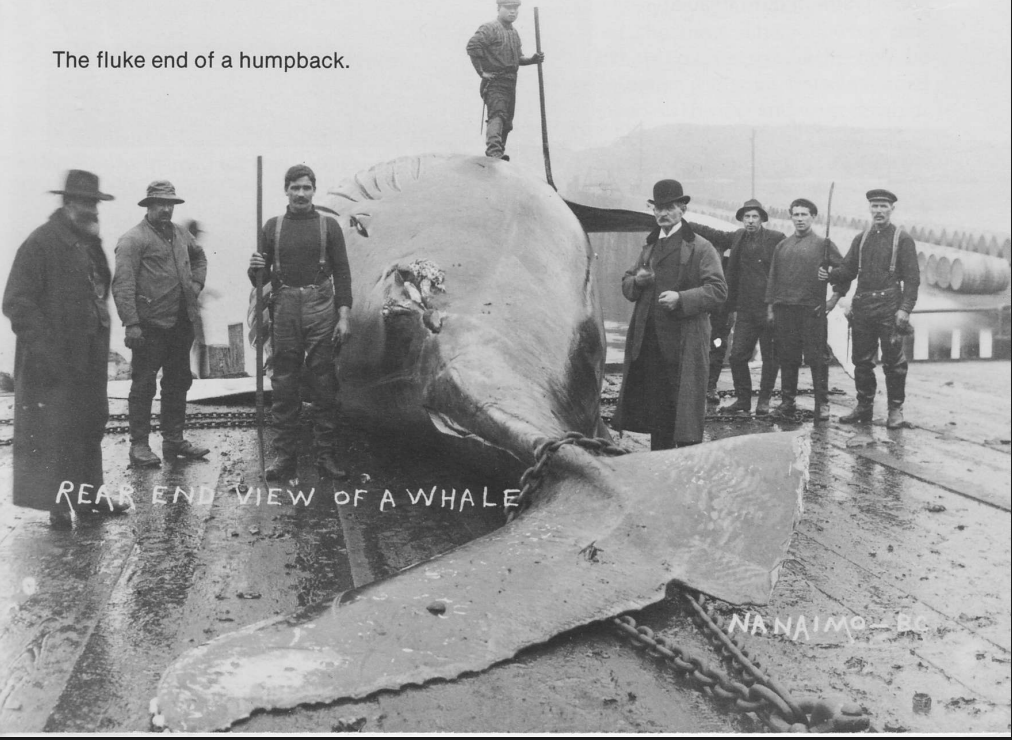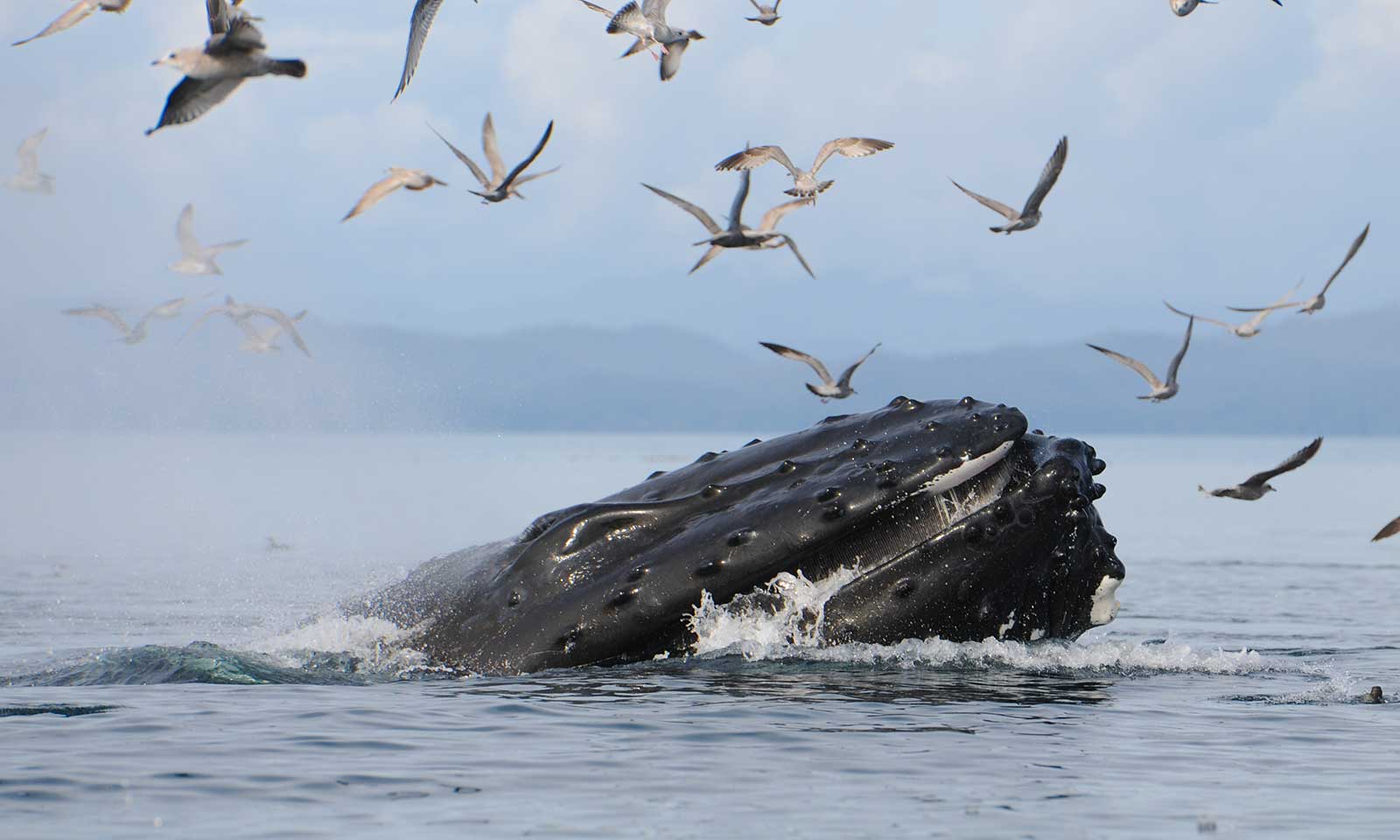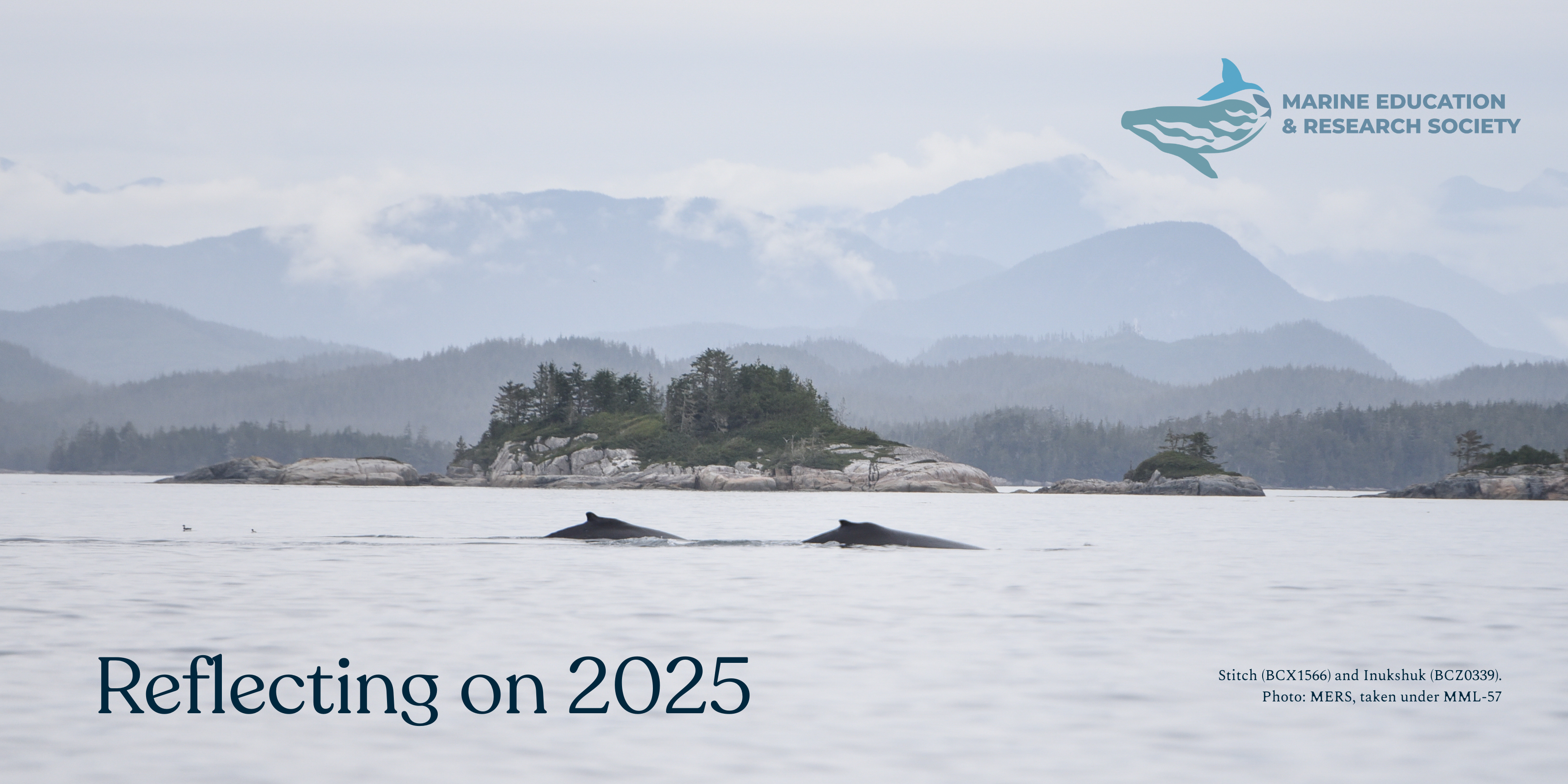
January 25, 2026
Humpbacks in the Salish Sea – then and now
There was already whale watching in British Columbia in the early 1900s. It was wiped out by whaling. We share the…
MERS Marine Education & Research Society

Pulteney (BCZ0297) lunge-feeding ©MERS, MML-42
Get to know MERS
We are a registered Canadian charity promoting conservation and understanding of marine ecosystems. We are based on northern Vancouver Island in the Territories of the Kwak̕wala-speaking Peoples.
Our work revolves around three key pillars: research, education, and response. With a research focus on whales, we are driven to understand and reduce anthropogenic impacts on marine species. Our research directly influences our educational efforts to motivate behavioural change to reduce threats and inspire stewardship. We are primary responders for dead, distressed, and injured marine mammals (as tasked by DFO) and assist with training of response volunteers. Our research and education efforts inform communications around marine mammal rescue and response.
The Marine Education and Research Society (MERS) is dedicated to promoting conservation and understanding of marine ecosystems through scientific research, environmental education, and marine wildlife response.
We expand the reach of our efforts through building community. Join us! There are many ways you can get involved. Participate in events. Help educate. Become a donor. Contribute data. Use the Whale Warning Flag and model best boating practices around marine mammals. Sponsor a Humpback Whale. Purchase sustainable goods from the Ocean Store.
Join us to help the whales, and the ocean they depend on.

MERS land-based study

January 25, 2026
There was already whale watching in British Columbia in the early 1900s. It was wiped out by whaling. We share the…

December 22, 2025
Humpback Whale migrations are staggered. Some individuals are still feeding off the coast of British Columbia in winter, leaving to migrate…

December 12, 2025
As the year draws to a close, it offers a chance to pause and look back on the projects, milestones, people…